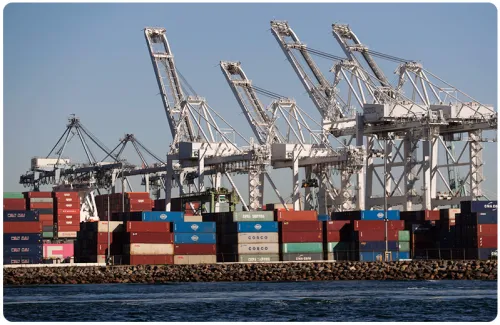The Trade Facilitation and Trade Enforcement Act of 2015 (TFTEA) was the first law since the Department of Homeland Security's inception in 2003 to grant U.S. Customs and Border Protection (CBP) comprehensive authority to ensure a fair and competitive trade environment.
The passage of TFTEA strengthened CBP’s enforcement authority to prohibit goods made with forced labor from entering the United States by repealing the “consumptive demand clause,” a relic of the of the earliest legal authority in the country against forced labor, which allowed the entry of products made with forced labor into the United States when manufacturers could not meet the demand for a specific commodity domestically. TFTEA also led to the establishment, in 2018, of a dedicated team within CBP’s Office of Trade to investigate and enforce forced labor violations. It also ushered in a new era of cooperative engagement among CBP's multi-disciplinary teams of international trade specialists, auditors, import specialists, attachés, and CBP officers. As a result of TFTEA and CBP’s initiative, the agency has developed a robust forced labor enforcement program and has become a global leader in the fight against forced labor, setting a standard of practice for customs authorities and governments around the world.
Not only did TFTEA pave the way for a more stringent forced labor enforcement, but it also included sweeping changes for the CBP drawback program, which refunds merchants’ paid duties, taxes, and fees when their merchandise is returned or destroyed. These changes provided numerous and significant enhancements that were welcomed by both CBP and the trade community because they streamlined the process for eligible items to qualify for drawback and made it easier for importers to receive refunds.
Other milestone updates associated with TFTEA include the establishment of 10 Centers of Excellence and Expertise, each one focused on streamlining trade operations at ports of entry for specific industries, such as textiles or electronics. TFTEA also established a new administrative procedure for investigating allegations of evasion of antidumping and countervailing duty (AD/CVD) orders, including the ability to draw adverse inferences for failing to provide information. It also authorized the Enforce and Protect Act program, which allows CBP to investigate AD/CVD evasion, ensures the U.S. Government collects duties owed and expands CBP’s investigative capabilities by allowing partnership with other government entities.
Last, but not least, TFTEA raised the de minimis threshold from $200 to $800 in response to a growing trend in e-commerce and with it, increased volumes of low value shipments. De minimis entries are, by definition, low value entries that CBP grants an administrative exemption to admit free of duties and taxes when they are at or below a specific aggregate value ($800 after the passage of TFTEA).
-
Key Areas of Trade Facilitation and Enforcement
CBP embraced a renewed approach to trade facilitation and enforcement with TFTEA, focusing on the following key areas:
- ✔ Balanced Trade Operations
- ✔ Automated Commercial Environment (ACE)
- ✔ Antidumping and Countervailing Duties (AD/CVD)
- ✔ Enforce and Protect Act of 2015 (EAPA)
- ✔ Centers of Excellence and Expertise (Centers)
- ✔ De Minimis Value Exemption
- ✔ Forced Labor
- ✔ Intellectual Property Rights (IPR)
- ✔ Drawback


